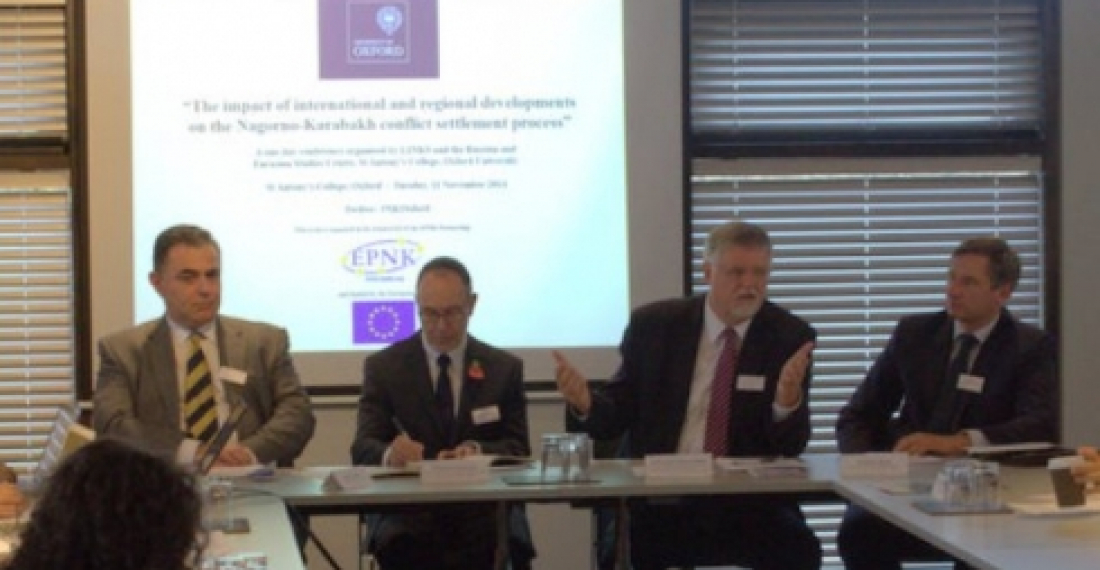The European Union Special Representative for the South Caucasus, Ambassador Herbert Salber reaffirmed the commitment of the European Union to support the peaceful resolution of the Nagorno-Karabakh conflict when addressing a one-day conference on the theme "The impact of international and regional developments on the Nagorno-Karabakh conflict settlement process", held on Tuesday, 11 November at Oxford University.
The Conference was jointly organised by the British non-governmental organisation, LINKS, and the Russian and Eurasian Studies Centre at St Antony's College, Oxford.
Salber also reiterated that the position of the EU in the conflict is to support the Minsk process, rather than replace or undermine it. He gave "two simple reasons" for close EU involvement. Firstly, the fact that the conflict is located in the EU neighbourhood gives Europe a "historically and philosophically strong stake". Secondly, "if one day there would be a solution, then many eyes would be on Brussels, and expecting the EU to make not only a substantial financial contribution, but also a contribution in security arrangements".
Ambassador Salber called on the sides in the conflict to approach the negotiations with a renewed sense of urgency. He emphasised that the international community cannot resolve the conflict by itself: "the parties must mobilise the political will."
Mr Sabler, who took up the South Caucasus job in July, stated his desire to visit Nagorno-Karabakh. He hoped that the political conditions for European diplomats to visit Nagorno-Karabakh could be created soon. "The representative of the EU should be able to say: 'I saw what is happening there with my own eyes, and had the opportunity to talk to people'."
Speaking about the international dimension of the conflict Ambassador Salber stated that "Moscow has a very specific role to play," while acknowledging that productive regional cooperation seems a long way off. He referred to concrete improvements to the situation in the Caucasus region that could be brought about as a result of a satisfactory arrangement with Russia, such as reconnecting the North and South Caucasus via the railway running through Abkhazia.
source: commonspace.eu
photo: Ambassador Salber speaking at a conference at Oxford University on 11 November 2014. (c) commonspace.eu







